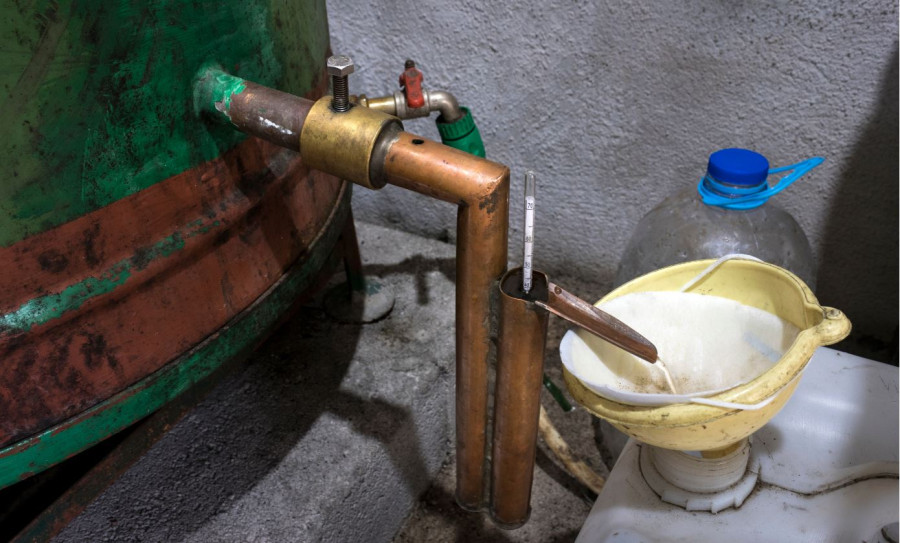National
Dozens of Nepalis languish in Saudi jails for bootlegging
Millions of Nepalis migrate abroad in search of better jobs and opportunities. They remit their income back home to support their family which has also been a major contributor of Nepal’s GDP.
Hom Karki
Millions of Nepalis migrate abroad in search of better jobs and opportunities. They remit their income back home to support their family which has also been a major contributor of Nepal’s GDP. But now and then we get to hear that some of these migrant Nepali workers jeopardize their career by indulging in illegal activities.
Dev Khatri, who migrated to Jubail, a city in Eastern province of Saudi Arabia, was handed three years in jail and 350 whip lashes by a local court for his involvement in bootlegging. The court found him guilty of brewing and selling hooch liquor production and distribution. Khatri’s life behind bars remained excruciating as he was whipped on a regular basis.
Like Khatri, Diplis Rae was slapped 150 whip lashes. Tikaram Rana Magar was sentenced to one year in jail and 150 whip lashes.
There is a long list of Nepalis living a painful life in Saudi jails. According to Riyad-based Nepali embassy, almost 80 percent Nepali prisoners in Saudi Jails are found guilty of bootlegging, consuming alcohol and sexual activities.
Saudi government has put a blanket ban on alcohol with stringent regulations against the consumption, import and distribution of the intoxicant. As the price of alcohol smuggled into the Arabic kingdom has exorbitant price—unaffordable for the low-income workers, the Nepali people found a way to make quick buck by brewing alcohol in their own rooms, and selling them to the people from the lower strata of the society.
Many Nepalis are producing alcohol in the hope of earning more in short term, defying the Saudi’s restrictive policies against liquor.
“Every Nepali here knows how to brew alcohol,” said Ramesh Phuyal from Gorkha, who has been working in Saudi Arab for the past eight years. “Here you can find people who brew multiple drums of alcohol. It’s not a big deal to find alcohol for those who consume it,” he said.
Phuyal revealed that such illegally produced alcohol is distributed in Pepsi bottles. “You cannot imagine what would be the plight of people arrested for brewing alcohol in this country where there is zero tolerance even for consumption,” said Phuyal.
According to Nepali embassy, most of Nepali prisoners in Saudi Arab are arrested for alcohol-related cases. “When our officials visit different jails here, most of the Nepalis are found to be arrested for alcohol-related cases,” said Ambassador Mahendra Singh Rajput.
The embassy has been conducting awareness campaigns by visiting various camps where Nepalis are living. “But we feel sad when Nepalis knowingly indulge themselves in illegal activities to earn more,” said the ambassador.
In Saudi Arab, there are 25 Nepalis in al-Hair prison, 22 in Dammam prison, four each in in Al-Ahsa and Al-Khobar, eight in Al-Jubaira. “These prisoner Nepalis have been given amnesty under the initiative of Nepali Embassy,” said Ambassador Rajput.




 20.16°C Kathmandu
20.16°C Kathmandu













